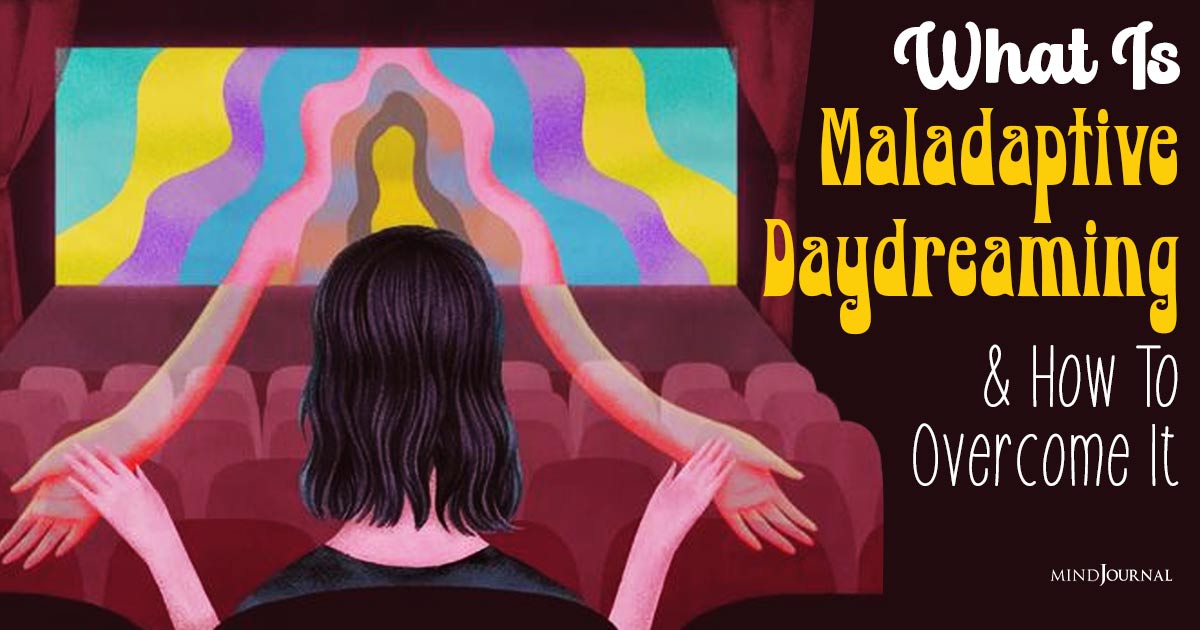Overcoming maladaptive daydreaming can be a challenge, but living with it can be a bigger one. This article is going to discuss what is maladaptive daydreaming and how to overcome maladaptive daydreaming in detail.
Many people who experienced childhood trauma learn to avoid painful feelings by escaping into fantasies or maladaptive daydreaming. I didn’t realize it at the time, but my reality was too painful to bear, so I escaped into daydreaming instead.
Everyone daydreams but not for hours on end and not to the detriment of their career, relationship, and other life goals. That’s what differentiates maladaptive daydreaming from the ordinary kind.
It’s an idealized world where the daydreamer feels accepted and loved, admired, and respected, in stark contrast to their earthly experience. It’s a way to get your emotional needs met when they aren’t met in real life.
But, of course, your actual needs won’t get addressed inside your head. Escaping into manufactured worlds holds you back from fulfilling your potential in life.
With maladaptive daydreaming, you know you’re doing it but can’t make yourself stop. Like any addiction, the experience feels intensely pleasurable at the time but is followed by equally intense shame and regret.
To combat maladaptive daydreaming, I took part in a pilot project which utilized the MBSR model (mindfulness-based stress reduction) developed by Jon Kabat-Zinn in the 70s.
Related: Warning Signs Of Unresolved Trauma: Recognizing The Invisible Scars
Why Shame Never Helps
Reducing maladaptive daydreaming through mindfulness reinforced my belief in the power of self compassion over self-criticism. You may have wrongly believed being hard on yourself would help you do better, but the opposite is true.
Like my alcohol addiction, shame did nothing but force me to go underground and isolate with my condition which only ensured I never got the help I needed to change.
My addiction did double duty as a salve against both painful reality and the shame experienced around the addiction itself. However, facing the addiction without shaming myself, led to transformation.
The expression “what you resist persists” rings true. Staying present and getting curious about my maladaptive daydreaming rather than running from it or letting it have its way with me, effected positive change.
The powerlessness I felt over my compulsion to daydream transformed into something more manageable with no “willpower” needed. The effort came not in trying to stop, but in simply taking the time to observe and journal about my experience.
How To Treat Maladaptive Daydreaming
Here are some of the mindfulness practices you can use to feel more empowered if you face this affliction.
1. Meditation
Set a timer for three minutes or longer and pay attention to your breathing. If your mind wanders, gently bring it back to your breath without judging or criticizing yourself. The key to mindful awareness is to accept whatever arises without criticism.
Meditation does not mean wiping your mind clean of thoughts and making it into a blank slate. It can be as simple as letting your thoughts roam freely. The key is to pay attention to your thoughts without judging them.

2. Body scan
A body scan is a mindfulness exercise in which you relax and bring focus to your physical body. You start by bringing your attention to your head and make your way down your body.
You can find guided body scans on YouTube from a few minutes to a half an hour in length.
Related: 8 Types Of Childhood Trauma And How To Defeat And Heal From Them
3. Journal your triggers
Often, maladaptive daydreaming sufferers find themselves in the middle of a session and wonder how they got there. Paying attention to what occurs immediately prior to daydreaming can help you feel more in control.
Writing down the trigger, which is often certain music, can help you become more mindful and even stay away from the source of activation if desired.
The mindfulness practices described here have positive effects lasting long after the meditation sessions themselves are over. You may notice that meditation makes your brain less scattered and your escape fantasies will decrease.
Instead of reaching for a daydream, commit to a mindfulness practice instead. You can download a meditation app, find guided meditations online, or set a timer and sit while your thoughts and emotions roam freely without judgment or shame.
Lesson 8 of the Self-Parenting Solution has strategies to overcome maladaptive daydreaming. Get the full course details here.
You can pre-order Laura’s upcoming book, It’s Not Your Fault, that’s coming out on 12th September here.
Written By Laura K. Connell Originally Appeared On Laura K. Connell










Leave a Reply